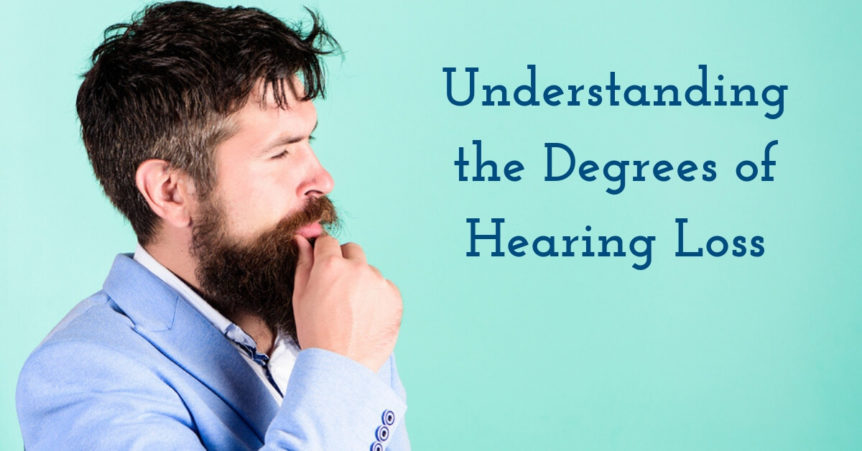You may have recently noticed that you aren’t hearing as well as you used to. Yesterday, you didn’t hear your loved one calling you from another room, and you’ve had a lot of difficulty hearing the TV and talking on the phone. You might wonder what other sounds you’re missing, or how severe your hearing loss really is. To understand the degrees of hearing loss, it’s important to schedule a hearing test, which will analyze your ability to hear certain sounds.
Degrees of Hearing Loss
Hearing loss is usually classified into one of four degrees of hearing loss. These range from mild hearing loss to profound hearing loss, and it’s a way for you, your loved ones, and your hearing professional to understand your hearing loss. Knowing your degree of hearing loss also helps you find the right hearing device and make sure you have all the programs and features you need to enjoy clear hearing.
Mild Hearing Loss
The first degree of hearing loss is mild hearing loss. This is the most common degree of hearing loss and often goes unrecognized and undiagnosed. This hearing loss might not seem to be having a big impact on your life, but you have trouble hearing soft sounds and miss out on some of the subtle noises in your environment. You can’t hear whispering, the rustling of leaves in the park, or other soft sounds. High pitched sounds are also hard to hear. You’ll start to notice difficulty following conversations in places with a lot of background noise, and have trouble in crowded places.
Moderate Hearing Loss
If you have moderate hearing loss, you’ve probably started to notice your hearing loss on a daily basis, since it’s interfering with your ability to do the things you love. As well as soft sounds, you’ve started to have trouble hearing sounds at a normal volume, like your coworker talking to you from the neighboring desk, or your grandkids telling you about their week. Conversations become more difficult to follow, and you often have to ask people to repeat themselves. You feel like you’re able to hear most of the words, but your brain can’t seem to process the words fast enough to make sense of what’s being said.
Severe Hearing Loss
Severe hearing loss is characterized by an inability to hear many sounds in your environment. Those with severe hearing loss cannot hear conversations at normal volumes. Sounds they can hear are very loud, like the sound of the vacuum cleaner, or the TV at maximum volume. If you have severe hearing loss, it would be difficult to get through a normal day without hearing aids.
Profound Hearing Loss
Profound hearing loss is the most advanced form of hearing loss, and if you have profound hearing loss you can’t hear any of the sounds of normal life. The only sounds you might be able to hear without hearing aids are extremely loud sounds like a lawn mower, loud appliances, heavy traffic noise, or sirens at close range.
When to Treat Hearing Loss
The short answer is: if you believe your hearing abilities have changed, then the time to treat your hearing loss is now.
If you’ve noticed any sign of hearing loss, whether talking to a loved one, at the office, or during Saturday morning breakfast with the kids, it is important to schedule a hearing test. Even if you don’t think your hearing is too bad, establishing baseline hearing levels to monitor your hearing loss is key to great hearing health outcomes.
It’s never too soon to treat hearing loss. The longer you wait before treating hearing loss, the more sounds you will lose. This is because hearing loss isn’t just in your ears, it’s in your brain. As the cells in your ear are damaged, and fail to pick up on sounds in your environment, the corresponding cells in your brain don’t receive any input. After a while, these brain cells deteriorate and could lead to greater issues down the line. Treating hearing loss early is the key to maintaining ear and brain health, and maintaining clear hearing for years to come.
Visit us today at one of our convenient Neighborhood Hearing Aid Centers locations to take a hearing test, learn more about the degrees of hearing loss, and find the hearing device that’s right for you.

